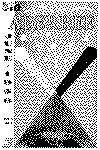Volume 3, Issue 3, page 9
5. A Plana, an Y, y.n.eAqetia
70 Re Ea,, De
S LITTlE children we viewed the world as
a sort of "Garden of Eden". We had parents to fulfill our daily needs and
parents to fulfill our daily needs and
endless time in which to explore the wonders
of the world about us. We knew much of happiness in those days, and that is as it should
be. We were learning about the world we live
in. We were expanding our awareness of life.
In this we were achieving part of life's purpose. And we experienced happiness.
One day we became aware of ourselves as
growing individuals. We began to sense the potential abilities that lay dormant within us
awaiting maturity for expression. We began to
feel a sense of urgency to grow to physical
maturity. We began to anticipate the freedom
that would become available to us as we reached maturity. And we began to feel an intense
impatience to grow, a longing to hurry up and
an adult.
Thereafter we had a new outlook on life. We
began to consciously direct our efforts
energies toward developing the dormant potential abilities we felt stirring within us. As
we succeeded in developing one potential ability after another we experienced much happiness. It has often been said that there is n
happiness like the carefree happiness of youth.
There is a fallacy in this statement which we
will discuss a little later, but there is also
truth in it. There is a carefree happiness
which we all experienced to a greater or lesser degree throughout our youthful years o
physical development. And this is as it should
be also. For it is part of the purpose of life
to develop the dormant abilities with which we
are endowed, a very important part. And when
we successfully direct our efforts to this
we are rewarded with a deep sensation of happiness.
For most of us the achievement of physical
adulthood is an anticlimax. The carefree happiness which we experienced through our growing years, and which we expected to continue
in ever greater abundance after we completed
our growth, begins to recede gradually. We begin to find ourselves increasingly harassed by
the vicissitudes of life. After awhile we begin to feel a little tired, a little old, and
somehow a little cheated. And this is not as
it should be. This is not in the direction of
life's purpose. It is not in accordance wit
God's Divine Plan. And it does not lead to the
sensation of happiness.
The sensation of happiness is tremendous13
important to us. As it gradually recedes from
our life experience we feel a growing need
recapture it. This feeling of need becomes sr
strong that we conclude the achievement of
happiness must be the purpose of life. So w
set up happiness as our life's goal and then
we strive in every way we can ima ine to achieve it. And the more we strive the more difficult it becomes. Eventually many of us resign ourselves to failure in achieving happiness and from there on we merely endure lif
to its bitter end. And this is not as it should
be. either.
Let's take a practical look at the situation. What can we observe from a review of o
past experiences? We see that under certa>n
'
conditions and in certain types of situation:
we experience the sensation of happiness?
what do we find in common in all such condi
TL _ A
d d and no


